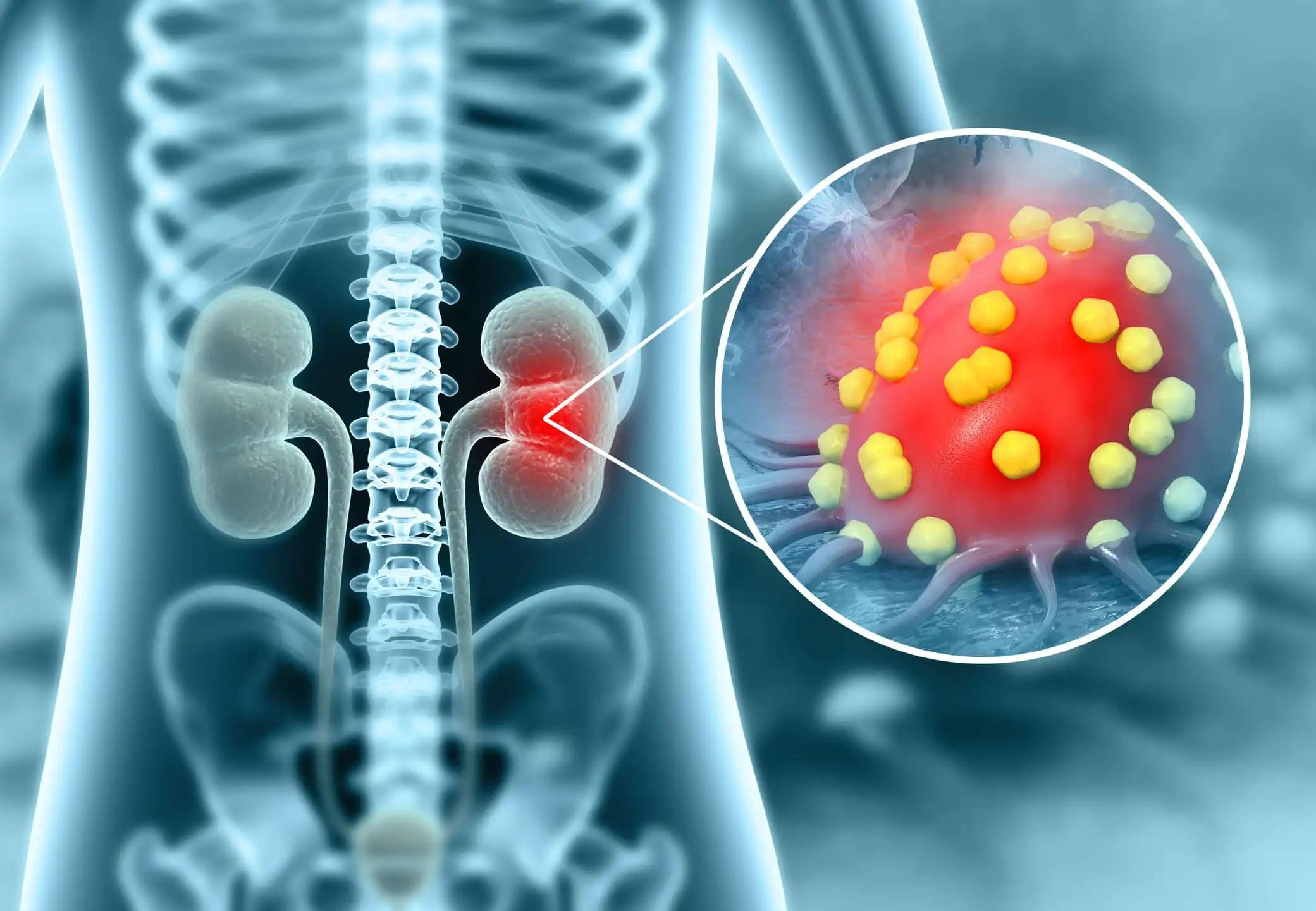KEY TAKEAWAYS
- The study aimed to investigate the emergence of ICI resistance and identify biomarkers for guiding immunotherapy selection in patients with advanced ccRCC.
- The primary objective was to determine PFS, response rate, and OS.
- Researchers noticed significant potential in genomic signatures to enhance treatment outcomes in ICI-based therapy for metastatic RCC.
Immunotherapy-based regimens with PD-1 or PD-L1 checkpoint inhibitors (ICI) have emerged as the standard of care for patients with advanced renal cell carcinoma (RCC) with clear cell component. While clinical benefit is frequently observed, most patients develop acquired ICI resistance and a subset have intrinsic resistance to treatment. While many biomarkers have been explored, no biomarker to guide selection for therapy is used clinically. Identifying positive and negative biomarkers to guide selection for IO based treatments remains an unmet clinical need.
Jeffrey Zhong and the team aimed to assess the presence of genomic signatures and their association with clinical and disease characteristics of patients, including progression-free survival (PFS), response rate, and overall survival (OS) in ICI-based treatments.
They performed an inclusive analysis within the RCC Clinico-Genomics Consortium, a collaboration of academic institutions formed in September 2023. This effort aims to aggregate de-identified clinical, molecular, and outcomes data from patients with unresectable and metastatic RCC treated using ICI-based regimens.
Inclusion criteria encompass a diagnosis of locally advanced/irresectable or metastatic RCC, front-line treatment with an ICI-based approach, and comprehensive tissue-based molecular profiling including whole exosome sequencing, whole transcriptome sequencing, and immunohistochemistry conducted by a CLIA-certified lab (CARIS).
Patient data is securely housed in a Redcap database initiated in September 2023, with 78 patients enrolled as of May 2024. Data entry continues toward capturing 150 records by end of 2024 and 250 by end of 2025.
The study concluded that the collaborative effort within the RCC Clinico-Genomics Consortium offers a promising clinical-genomic tool for exploring potential predictive biomarkers in metastatic RCC. It provides valuable real-world data, including insights from patients typically excluded from clinical trials.
Genomic signatures were found to correlate with clinical and disease characteristics, highlighting their potential role in predicting outcomes such as PFS, response rates, and OS in ICI-based treatments.
No findings were available for this study.
Source: https://kcrs.kidneycan.org/wp-content/uploads/2024/06/KCRS24-Abstract-Book-6.27.24.pdf
Zhong J, Yildirim A, Chang M, et al. (2024). “RCC Clinico-Genomics Consortium: A database of linked clinical data and molecular alterations in RCC patients receiving with immunotherapy-based treatments.” Presented at KCRS 2024 (Abstract 10).



